An open book: Radiation Therapy Technology alum Charles M. Washington '87 shares his journey with today's students
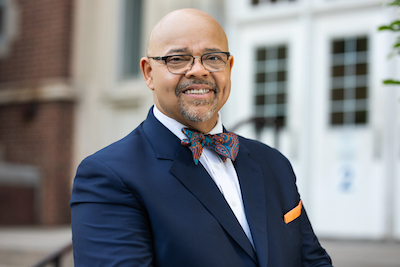
Wayne State University alumnus Charles M. Washington '87 wrote the book on radiation therapy technology - literally.
The textbook he published in 1996, now in its fifth edition, is used by the WSU Eugene Applebaum College of Pharmacy and Health Sciences Radiation Therapy Technology program, as well as other RTT programs across the globe.
"Prior to my book, the materials used in radiation therapy courses were piecemeal collections of instruction that had been designed for physicians, nurses and other medical disciplines," Washington said. "Principles and Practice of Radiation Therapy encapsulates our practice and is now considered the definitive work for radiation therapy practitioners by radiation therapy practitioners."
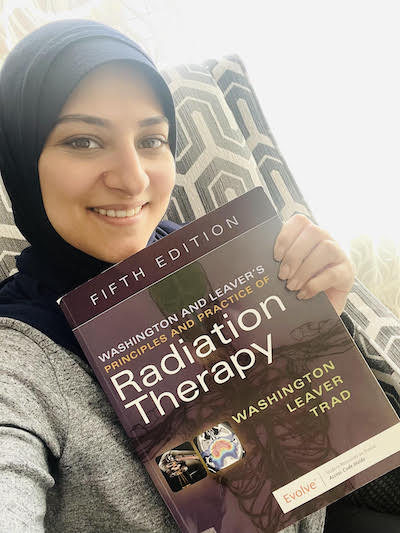
WSU Applebaum RTT Program Director Jeannetta Greer, a grad who studied alongside Washington in the '80s, said, "It is a great book and features useful information the students can learn and then apply in clinic. I am so proud of Charles and his accomplishments."
Those accomplishments go far beyond the impressive-on-its-own textbook publication and subsequent reissues. After leaving Detroit with his bachelor of science, Washington went on to earn his MBA from DeVry University and doctor of education in organizational change and leadership from the University of Southern California.
Although he was three decades removed from Wayne State when he earned his EdD, two of the people Washington dedicated his dissertation to were WSU Applebaum faculty members Diane Chadwell, who was program director during his years on campus, and instructor Adam Kempa, who kept on Washington's case long after being his teacher. "He needled me to get my master's, and after I did that, he asked when I was going to get my doctorate," Washington recalled. "Once I did, I called Adam and said, 'You can now call me Dr. Washington.'"
Origin story
Washington's journey to becoming a doctor began when he graduated from Detroit's Cass Technical High School at just 16 years old and enrolled at Wayne State as a pre-med student. "I was not mature and ended up needing to leave school to find myself and come back," he said.
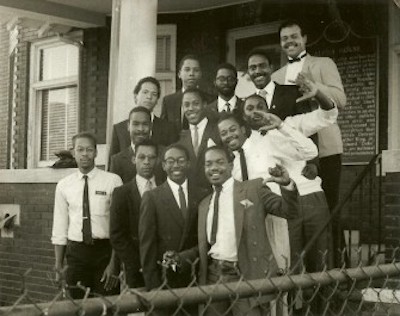
In the interim, his father underwent radiation therapy for lung cancer, inspiring in Washington a new career goal. "It was fortunate that Wayne State had a radiation therapy bachelor's program and that my pre-med credits could be applied. That's kismet - it was in the stars, it was written, it was supposed to be. I entered the program and did extremely well."
So well that he was offered several jobs upon graduation, ultimately choosing a radiation therapist position at the University of Texas MD Anderson Cancer Center, one of the world's most respected centers devoted exclusively to cancer patient care, research, education and prevention.
Although Washington had moved to Houston for a clinical job at the center, he was almost immediately called to the classroom. "One of the things I did at MD Anderson was teach a basic class in dosimetry [the science by which radiation dose is determined]. Our physics team was accustomed to working with master's and doctoral students, so their platform was at a higher level than we needed as radiation therapy practitioners. I had some limited teaching experience, saw it as an opportunity and said I'd do it," he recalled. "It showed me how much I really love education."
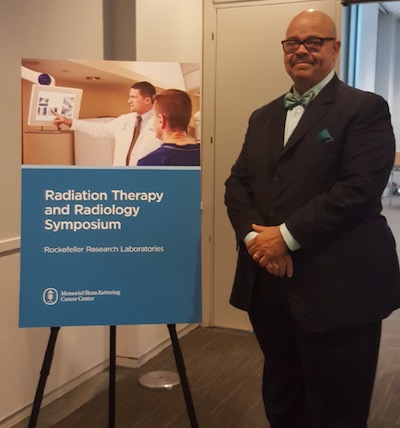
After just three years in Texas, Washington advanced to become MD Anderson's radiation therapy program director, a position he held for eight years before being asked to take an administrative role. "Leaving the clinic was a major transition because I had really enjoyed working with patients one-on-one," he said. "I came to realize that even though I was no longer in direct patient care, I could touch even more by people by educating others to do what I do - and do it better."
He rose through the ranks, ultimately serving as director of proton therapy and operations from 2009-12 before moving to New York and his current position: senior director of radiation oncology for Memorial Sloan Kettering Cancer Center, consistently recognized (with MD Anderson) as one of the top two cancer hospitals in the nation.
Giving back
Along the way, Washington has engaged in professional societies that are steeped in giving back, starting at WSU with his brotherhood in Alpha Phi Alpha Fraternity. The first intercollegiate Greek-letter fraternity established for African Americans, Alpha Phi Alpha has long stood at the forefront of the fight for civil rights.
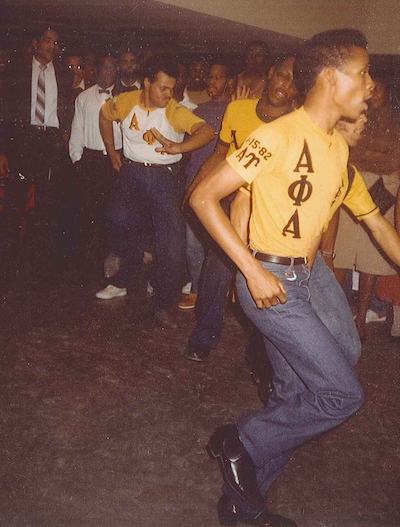
"This year will mark 40 years that I've been an active member," Washington said, noting that fraternity programming has paved the way for numerous leadership, community service and mentorship experiences. "We go to middle schools and talk to young African American boys about transitioning into manhood and the responsibilities that come with it. We go to high schools and talk about the importance of voter registration and college."
In 2010 and 2011, Washington participated in the Steve Harvey Mentoring Program, which gathers hundreds of fatherless teenage boys from around the country each year for a dynamic four-day weekend filled with encouragement, brotherhood and fun. Washington was among the business and entertainment leaders Harvey recruited to serve as positive male role models and participate in skill-building activities such as teaching participants to knot a necktie, a lesson delivered with the message that image matters and builds confidence within.
"There's a saying among African American males: To be a man, you have to see a man," Washington said. "When young men see a man that looks like them in a suit who's willing to talk with them, it's inspiring to them. That helps send the message that being a man means accepting responsibility, being a good citizen, and supporting not just your family but your community."
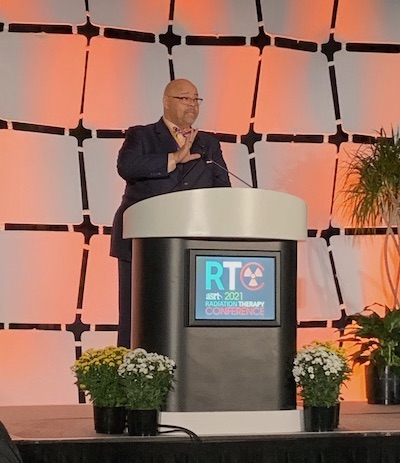
Professionally, Washington has been extraordinarily active in industry associations through the years, holding a range of leadership positions in the American Registry of Radiologic Technologists and the American Board of Imaging Informatics, among others. He currently serves as a board member on the Urban League of Essex County and as chair of the education committee for the National Association of Health Service Executives - New York Chapter, whose goal is to empower the next generation of health care leaders.
"I'm at a stage in my career where giving back is important. I want to let young professionals know where the pitfalls are," Washington said. "I'm currently developing a mentoring program for mid-level managers in my organization, with a focus on minorities because while about 60% of our lower-tiered managers are minority in origin, they are woefully underrepresented in the mid- and upper levels. I take mentorship very seriously."
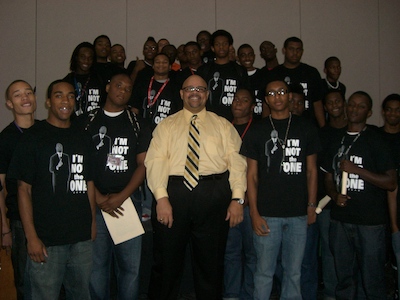
Be the change
During a discussion about Black History Month, Washington said, "Black history is important every month but we're relegated to February for reflection on the contributions that African Americans have made. During these very tumultuous times, we need to understand our identity because when someone wants to oppress you, one of the first things they do is attack your culture."
Washington added that he has experienced his share of racism. He has early memories of walking home from third grade past military tanks during the 1967 Detroit Rebellion. "There was a great rumbling, a sea of faces shouting for civil rights and flames off in the horizon," he said. "The city was in total disarray because of race. How can people be pushed to the point where they have to resort to violent activities to be heard? It had a profound impact on me."
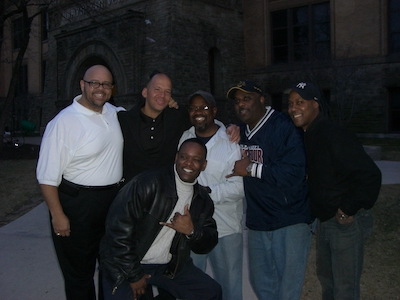
As he grew older, Washington was disrespected based on his appearance both in clinical and academic settings. "When people look at you and see color and think negative things, you get mad. It's hurtful. You think, 'You don't even know who I am.'"
Washington surveys today's landscape - the disparities and the lack of inclusion - and he can't believe this is still our reality. "I get a lot of comfort from talking with my fraternity brothers about what we can do to make some change," Washington said. "They look at me as one of the elder statesmen. They say, 'You're an expert - you've got a doctorate in organizational change!' But it takes time to change behaviors. I don't know if in my lifetime we'll get to a point where there's broad-based acceptance.
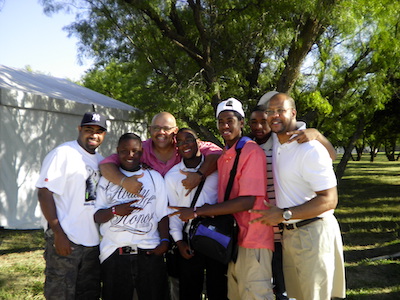
"I think back to the riots and know that we cannot allow ourselves to get to the point where it takes physical intervention to be heard. What we can do now is educate and not lose sight of where we need to go."
Washington considers himself blessed to be in a position not just to educate and share his story but to demonstrate leadership. "I've had a very fruitful career and now I'm thinking about the next generation," he said. "I'm thinking about how we can move forward as a group, and what I can do to help make that happen."
Radiation therapists have a unique opportunity to blend the knowledge and skills of mathematics, science and psychology in their daily work. Radiation therapists operate sophisticated radiation equipment to treat malignant tissue, assist in designing cancer treatment through the use of 3D computer-generated calculations, recognize when a patient is having additional medical problems that require a doctor's attention and provide psychological support for patients who are dealing with the stress of their illness. The bachelor of science in Radiation Therapy Technology is offered through Wayne State's Eugene Applebaum College of Pharmacy and Health Sciences with an application deadline of Nov. 30.